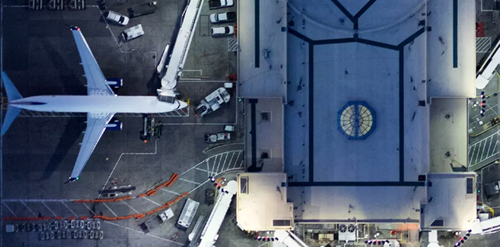News
Air Liquide, Groupe ADP announce ambition to create the first joint venture to develop H2 infrastructure at airports
With this ambition of creating the first engineering joint venture dedicated to accompanying airports in their project to integrate H2 in their infrastructure, Air Liquide and Groupe ADP are strengthening their collaboration. This announcement follows a MoU signed in 2021 to carry out feasibility studies to accompany the arrival of H2-powered aircraft. This partnership project demonstrates the Groups’ shared ambition to act now to pave the way for decarbonized air transport worldwide.

The purpose of this 50:50 joint venture will be to provide airports in France and across the world with the engineering and services they will need in their transition to H2. As the first H2-powered commercial aircrafts are expected by 2035, airports need to start reconsidering their infrastructure as of today. In particular, they must look at how liquid H2 will be supplied and how it can also serve other ground mobility usages, notably heavy-duty mobility or light ground support equipment.
The services provided will allow airports to meet all the challenges they will face to integrate H2, including:
- Estimated volumes of H2 required over time
- The optimal H2 supply chain based on the airport’s specific characteristics and location
- Scope and pre-installation work for the H2 infrastructure required at the airport
- Preliminary safety studies
- Cost studies and investment road maps
- Carbon impact assessments.
In 2021, Air Liquide and Groupe ADP initiated a first collaboration, together with Airbus, to carry out a year-long study into the configurations of 30 airports worldwide, with a particular focus on Paris-Charles de Gaulle and Paris-Orly. Preliminary studies confirmed H2’s potential to decarbonize aviation, identifying several production and supply chain patterns that can be integrated in airport infrastructures. Thanks to this cooperation, Air Liquide and Groupe ADP have developed unique expertise in the infrastructure sizing and pre-implementation phases that will be required at airports for this transformation.
Air Liquide will bring to the joint venture its expertise in H2, from production through electrolysis, liquefaction, storage to the distribution of H2 to aircraft. Groupe ADP will contribute its expertise in airport engineering and knowhow in airport operations.
Matthieu Giard, Vice President, member of the Air Liquide Executive Committee notably supervising H2 activities said, “H2 is necessary to tackle the challenge of the energy transition. Studies carried out with Groupe ADP over the last year have confirmed H2 can have a major contribution to decarbonize the airport sector. Airports have to be ready for H2-powered aircrafts by 2035, and to foster the emergence of a H2 mobility ecosystem at large. This is why now is the time to work on adapting infrastructures. Air Liquide and Groupe ADP therefore project to create the first joint venture specialized in this field, building on our initial collaboration and pooling the complementary expertise of our two Groups. In line with our commitments, our ambition is to actively contribute to the emergence of a low-carbon society.”
Edward Arkwright, Groupe ADP Deputy Chief Executive Officer said, “Having worked together with Air Liquide to produce studies over the past year, this joint venture was a logical next step. With it, we expect to have the first ground-based H2 technology use cases in place at Paris-Charles de Gaulle and Paris-Orly airports in 2023. Our collaboration with Air Liquide is a long-term one and is based on the complementarity of our respective expertise: the H2 supply chain for Air Liquide and airport infrastructure and operations for Groupe ADP.”

